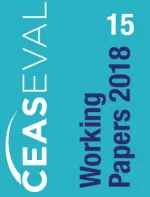Hyperpoliticisation of asylum and responsibility: The Bulgarian case: from polarisation to hegemonisation

CEASEVAL Working papers No.15
This analysis serves a two-fold purpose: theoretical and empirical. Its theoretical part reconstructs the concept of politicisation and develops it. The empirical part examines its applicability to the Bulgarian case analysing three types of discorses: political, media, intellectual. The text is structured in three parts. The first part elaborates the theoretical foundation of the analysis, building upon Wilde’s notion of politicisation and extending it in three directions: from politicisation to hyperpoliticisation; from polarisation to hegemonisation; and the refugee crisis - from a classical one to a post-democratic one. The second part analyses the mental maps of Bulgarian citizens via national and European public opinion polls. The third part examines the political and media debates on responsibility during three episodes of contention: MayNovember 2015 during the EU quota debates; the Bulgarian presidential campaign in the autumn of 2016, with its high salience of refugee policies; and the Bulgarian Presidency of the Council of the EU during the first half of 2018.
The study demonstrated a convergence of the following trends: mainstreaming of populist emphasis on refugee issues; weakening and maginalization of alternative voices (no big influential party defends liberal positions); adoption by the governmental majority the opposition refusal of readmission of refugees and de-responsabilisation on common European refugee policy. All these trends develop in a situation of significant decrease of migration flows. Extreme politicisation of migration crisis in a situation of decrease of migration pressure is defined as a post-democratic migration crisis – a new concept forged by the autor which main characteristics are: the detachment from the reality, as well as the transition from a classic ad hoc crisis to a situation of permanent migration crisis. The interference of these trends demonstrates the transition from polarization to mainstreaming and hegemonisation of anti-relocation, anti-responsibility discourse which culminated in de-responsabilisation and de-Europeanisaton of asylum policy in which government and opposition, left-wing, right-wing, and far-right converge.
Keywords: politicisation, responsibility, European asylum policy, refugee crisis, post-democratic crisis, Bulgaria, Bulgarian Presidency of the Council of the EU.